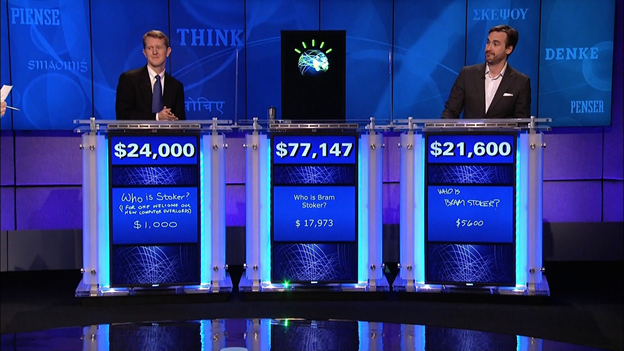Watson Finds a Job
March 19, 2012 in Daily Bulletin

It seems that even the beloved Watson has found a job for himself in this economy. Beth Jinks reports that Watson, of jeopardy fame, will soon be making billions of dollars, although he’s unlikely to have the opportunity to keep any of it. Instead the revenue will go straight into the pocket of its owner, IBM:
- Watson’s ability to process natural language and comb through large datasets gives it a wide variety of applications in the business world.
- Health care providers have already been taking advantage of Watson’s services. Citigroup is the first financial services firm to do so.
- IBM believes that Watson is currently suited to manage portfolio risk. It monitors sources of information including conventional news sources but also sites like Facebook.
- Watson is expected to earn $2.65 billion in 2015.
To read more about some of Watson’s competitors, areas where the software still lags, and other applications for the loveable computer system click here.
Source: Bloomberg
Via: Marginal Revolution

















Join the Discussion! (No Signup Required)